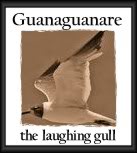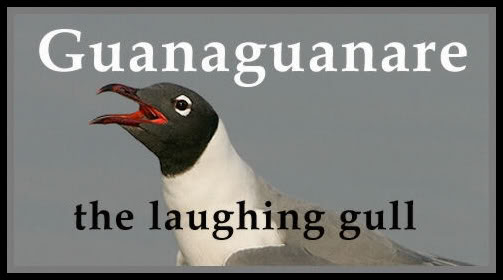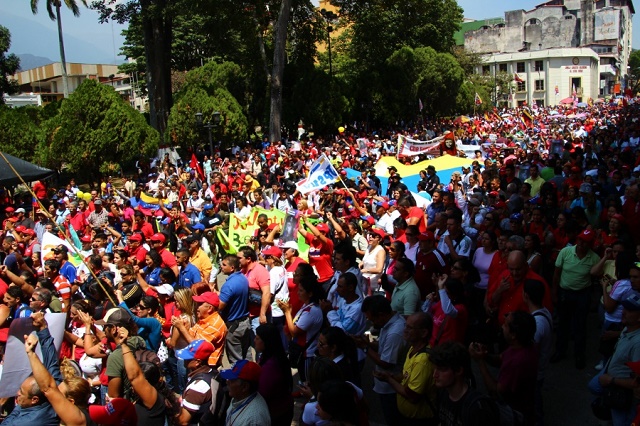Uploaded by McKeLLY J
BOIS!
By Mistah Shak
Performed in Skinner Park, San Fernando, at the Calypso Monarch Semi Finals, February 22, 2014.
This bois man ent 'fraid no demon
I come to sing in rebellion
[They done in the grave already.]
Me ent 'fraid no stick man
[They done in the grave already.]
As a young culture lover, I get in the kaiso thing
And quickly discover this thing just like a stick fight ring
And in the kaiso gayelle, you must be fearless and forward
'Cause you could get real buss head if you careless or coward
Lord, so with mih kaisos as mih bois, I step in the arena
And start to deliver licks left, right and center
Without fear, without favour, I never falter or waiver
Dread young kaiso warrior... From whey?...down Siparia.
So let dem know this year I more dread
When I gone in the gayelle, whoever be wounded could dead.
Is bois! In the morning I pelting [Bois!]
In the evening I flinging bois!
I go beat dem with kaiso bois [Real bois!]
So tell this ruling Partnership, in this gayelle they gets no mercy
Not the COP, the UNC, neither NJAC or TOP
'Cause if you line up their first letters, read between the lines carefully
That spelling C-U-N ...... but wait T&T yuh see?
They need some bois! So when I meet them, I pelting bois!
As I see dem I flinging bois
I go beat dem with kaiso bois, [Real bois!]
And tell their leader, Mrs. Clueless, Mrs. "
I've been so advised."
We fed up of she
mamguys and we sick of the blatant lies
If she make one more misstep in this gayelle, she in trouble
So best she find the truth and distill it and start to drink it by the bottle.
Or is bois! When I brace she, I pelting [Bois!]
Man, as I face she, I flinging bois!
I go beat dem with kaiso bois [Real bois!]
I doh business who dey are, they all getting real, real bois
Tell dem to stay real, real far. Why?
This here [year?] is kaiso bois!
[They done in the grave already.]
This bois man ent 'fraid no demon
[They done in the grave already.]
I come to sing in rebellion
[They done in the grave already.]
Me ent 'fraid no stick man
[They done in the grave already.]
When I first make mih debut in 2007
And they hear what I could do, bois men start to get frighten
They say this Mistah Shak, he intend to cause trouble
And if we ent hold him back, this fella could kill people
Boy, so they set out to shut me down, some even try to cut me down
But Jah is mih protection, mih shield and direction
So I maintain mih focus, I never forget mih purpose
I am a kaiso bois man, a voice for the population
So let them know they will feel the pain
If they really think that they could silence me?... Think again!
Is bois! In the morning I pelting [Bois!]
In the evening I flinging bois!
I go beat them with kaiso bois! [Real bois!]
That shameless attention seeker, Mr. Crime Watch, the drama queen
You love to give people wetting, well, grab yuh bois and step in
All the talk 'bout you not for sale, in the gayelle all that will end
Because now we know for the right price and the right men, you willing to bend.
[Bois! Bois!]
When I see him, I flinging bois [Real bois!]
The same party you used to mash up, look how they support you strong
But they drop you like a bad habit when St. Joseph turn you down
You ent learn nothing from yuh sister in Club Zen. Something wrong.
How yuh family always ending up in party allyuh doh belong? Eh?
Bois! When I see dem I pelting [Bois!]
As I meet dem, I flinging bois!
I go beat dem with kaiso bois [Real bois!]
I doh business who they are, they all getting real, real bois
Tell dem all to stay real, real far 'cause this here is kaiso bois!
[They done in the grave already. ]
[They done in the grave already.]
[They done in the grave already.]
This bois man ent 'fraid no demon
[They done in the grave already.]
Soon enough they realise me ent so easy to beat
Because I don't compromise, I doh surrender or retreat
Any time I recognise ------- folly or deceit
Well mih kaiso bois will rise and they all fall in defeat
That's how I make mih name in South, man, I beat them all about
Then I take mih stick fight crown and leave and gone in town
But certain town bois men find I was a threat to them
So they try to pressure me in an attempt to censor me
But now they know me ent making joke
'Cause they bawl for murder when they see the worries they provoke.
Is bois, bois!
In the evening I flinging bois!
I go beat dem with kaiso bois [Real bois!]
This stick man dey tell himself nobody couldn't touch him at all
Until he own team mates kick him like a FIFA football
When he was part of the stick fight cabal, they was thick as thieves
So when they hold him and hang he Jack, he and all couldn't believe.
Was [Bois!] If you see how they hit him [Bois!]
Man, they hold him and give him [Bois!]
Well, they nearly kill him with bois [Real bois!]
Well, the man get green with envy when he get dismissed
Suddenly he grow a conscience and start to talk the cabal business
If he think that he fooling we, bois go make him ss-ss-ss-stutter
And if he want sympathy, tell him ask he m-m-m-mother.
[Bois! Bois! Bois!]
I go beat dem with kaiso bois [Real bois!]
I doh business who they are, they all getting real, real bois
Tell dem I say stay real, real far 'cause dis here is kaiso bois
[They done in the grave already!]
[They done in the grave already!]
This bois man ent 'fraid no demon
[They done in the grave already!]
Well, I come to sing in rebellion
[They done in the grave already!]
So, I want them all to know, I'm a force to reckon with
From the gayelle of kaiso, none of them can't make me quit
Because now, more than ever, we need truthful defenders
'Cause the gayelle under siege by ruthless pretenders
Boy, this ent no time to pussyfoot or to beat around the bush
All who creating problems, we have to confront them
But some bois men in the town suddenly get blind and dumb
Too busy eating a food to address the real issues
But tell dem all I'm never afraid
I will sing it as I see it and I'll call a spade a spade.
[Is bois, bois!] Skinner Park, what we giving them? [Bois!]
We go beat with kaiso bois! [Real bois!]
Well, it have a badjohn bois man, I eager to deal with he
They say he nickname is AG 'cause he Arrogant and Greedy
He does boast how he wearing silk and he know every stick fight law
But somehow he doh know the word
extradite or the number
34.
So is [Bois! Bois!]
When I see him, I flinging bois!
I go beat him with kaiso bois [Real bois!]
All your big shot friends who you give Range Rover, can't save you at all
And you can't fight in this gayelle with no pre-action protocol
You sure to lose 'cause you doing things wrongside for your whole life
You suppose to put licks on the ram goat and make love to your wife.
Bois! When I see dem ah pelting [Bois!]
I go beat dem with kaiso [Bois!]
I go lick dem with kaiso bois! [Real bois!]
I doh business who they are, they all getting real, real bois
Tell dem all to stay real, real far 'cause dis here is kaiso bois!
Skinner Park! [They done in the grave already!]
This bois man ent 'fraid no demon
[They done in the grave already!]
Well, I come to sing in rebellion
[They done in the grave already!]
This bois man ent 'fraid no demon
[They done in the grave already!]
If I buss dey eye, doh cry
[They done in the grave already!]
If I buss dey head, doh dead
[They done in the grave already!]
If I break dey neck, doh vex
[They done in the grave already!]
If I break dey foot, doh steups
[They done in the grave already!]
Skinner Park, dis bois man ent 'fraid no demon!
[They done in the grave already]
[They done in the grave already]
[They done in the grave already]
[They done in the grave already.]
Extra verse from this recording
From the Ministry of Security, we get four different stick fighters
First was Brigadier Sandy, then they send in Action Warner
They give we Hurricane George, now is Captain Griffith
Them sound like four super zeroes from a Partnership comic strip.
Is bois!.....
And the top brass in the police service in the ring wasting time
'Cause the Commissioner still acting as if he could fight the crime
And the foreman DCP, that slow, stick fighting dunce
Some e-mail beat him for months but he tackling Rapid Response?
Is bois!
Source: The lyrics posted on this blog are often transcribed directly from performances. Although it is my intention to faithfully transcribe I do not get all the words and I have a knack for hearing the wrong thing. Please feel free to correct me or to fill in the words that I miss by dropping me a message via e-mail. I'd be forever grateful. Thanks in advance! ..............................................................................................................................

A Note From The Gull
Thank you, Mistah Shak... "
Because now, more than ever, we need truthful defenders."
"Patria est communis omnium parens" - Our native land is the common parent of us all. Keep it beautiful, make it even more so.
Blessed is all of creation
Blessed be my beautiful people
Blessed be the day of our awakening
Blessed is my country
Blessed are her patient hills.
Mweh ka allay!
Guanaguanare















